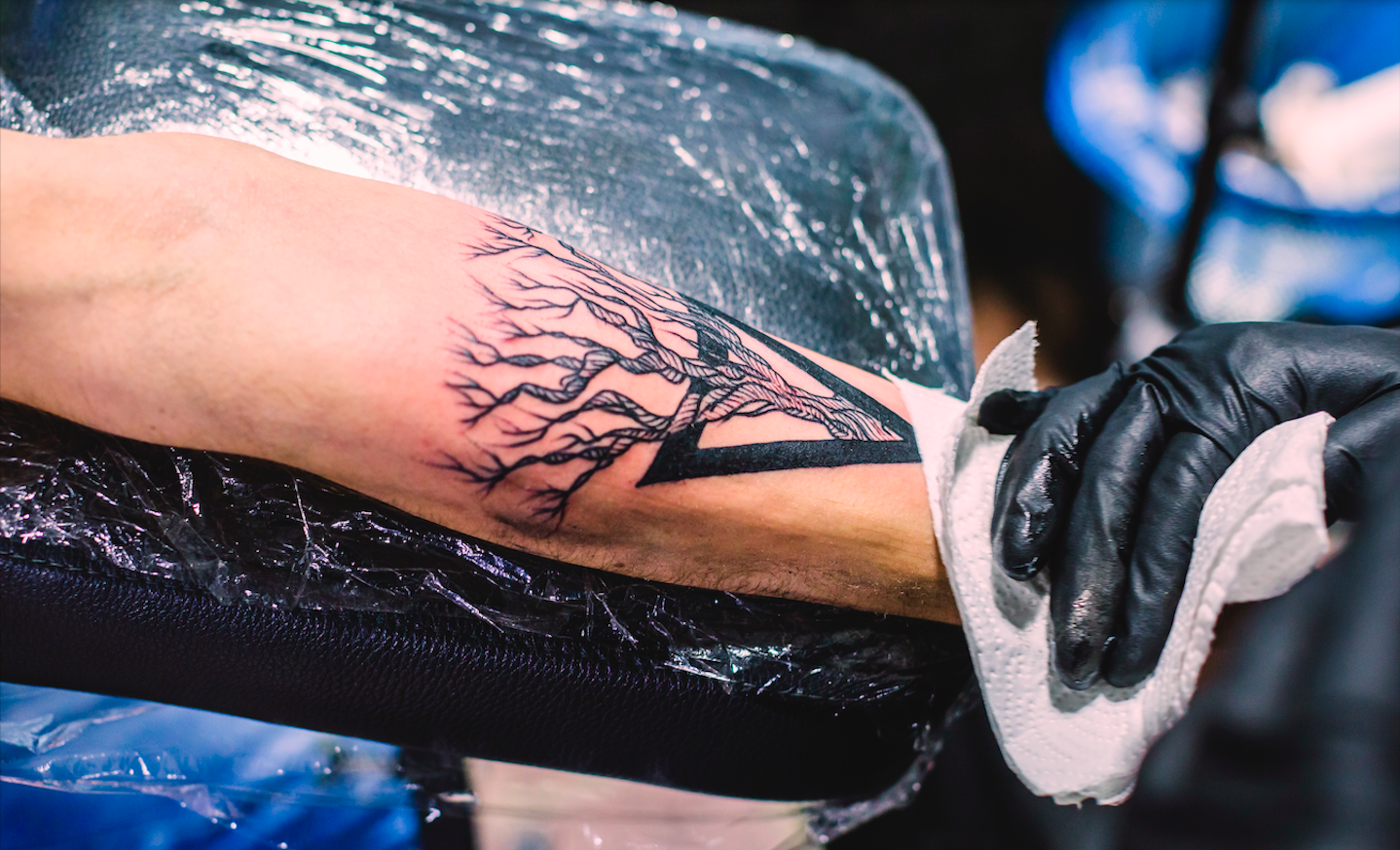InkPulse.News
Archives
Tattoo Health: Essential Aftercare and Potential Risks
SIGN UP FOR OUR NEWSLETTER
Tattoo Health: Essential Aftercare and Potential Risks |
Understanding the Importance of Proper Tattoo Care and Awareness of Health Implications |
Considering new ink? Whether it's a bold tribute to a loved one or a subtle design, tattoos are a popular form of self-expression.
However, it's crucial to be aware of the health aspects associated with tattooing.
According to recent studies, approximately 32% of U.S. adults have at least one tattoo, with 22% sporting multiple designs.
While most tattoo experiences are uneventful, there are potential risks to consider.
Dr. Alok Vij, a dermatologist, emphasizes, "In most cases, tattoos aren't harmful. But there are some risks you should know about if you're considering a tattoo."
Modern tattooing involves machines that use multiple needles to inject colored pigments into the dermis, the skin's middle layer.
Unsurprisingly, this process can be painful.
"Getting a tattoo can be painful," Dr. Vij notes. "And while the pain is temporary, the artwork is forever."
Proper aftercare is essential to ensure your tattoo heals correctly and to minimize health risks.
Dr. Vij provides guidance on tattoo aftercare and signs of potential complications.
Tattoo Aftercare Instructions
Expect some discomfort on the day you get your tattoo, but this should improve over the following days.
Here's how to support the healing process:
Supplies You'll Need:
- Warm water
- Gentle cleanser or soap
- Moisturizing lotion or ointment
- Sunscreen
"Tattoos are controlled forms of trauma to your skin, which needs support to heal properly," says Dr. Vij.
"Improper or negligent aftercare can compromise the healing process, leaving you with infections, rashes, scars, or smudges in your tattoo, and you'll only have yourself to blame."
Aftercare Steps:
First 24 Hours:
After receiving your tattoo, the artist should apply a thin layer of ointment and cover it with a bandage.
Keep it covered for at least 24 hours.
When removing the bandage, wash your hands first.
Soak the bandage in warm water to soften it before gently peeling it off.
Then, wash the area with a gentle cleanser and warm water, avoiding scrubbing or rubbing.
Use a mild soap without harsh ingredients, perfumes, or dyes.
Gently pat the area dry with a soft towel.
After this, you don't need to cover the tattoo again.
It's normal for the area to ooze a little—a mix of blood and ink.
Your skin may feel sore and appear red, which are normal signs of healing.
If you need to wear clothing over the area, choose loose, breathable options to allow the tattoo to breathe.
First Two Months:
During the first two weeks, you may experience itching and notice flaking around the tattoo.
Scabs may form.
Avoid scratching or picking at any scabs.
Continue to wash the area twice daily with a gentle cleanser and apply a moisturizer to prevent scabbing and ease itching.
Choose a mild, fragrance-free, and dye-free moisturizer.
After about three weeks, scabs should heal, and flakiness will reduce.
Keep cleaning and moisturizing the area daily.
Two Months and Beyond:
By the two-month mark, the top layer of your skin should have healed, leaving your tattoo looking bright and vibrant.
However, the bottom layers of your skin may take several months to fully heal.
While daily cleansing isn't necessary anymore, continue applying moisturizer as needed.
What Not to Do After Getting a Tattoo:
Avoid the following:
- Scratching
- Picking at scabs
- Exfoliating the area
- Using petroleum jelly
- Direct sunlight
- Applying sunscreen to the area until the tattoo is fully healed
- Wearing tight clothing
- Immersing the area in water (hot tubs, bathtubs, pools, etc.) until the tattoo is fully healed
"You want to strike that delicate balance between keeping the skin clean and moisturized so it can heal; neither too moist so the skin 'prunes' or gets macerated, nor too dry so the tattoo crusts or scabs over," shares Dr. Vij.
"Petroleum jelly can block the pores in your skin, potentially leading to an overgrowth of bacteria and increased inflammation in the healing process.
Instead, look for a noncomedogenic product."
Possible Complications After Getting a Tattoo:
"One of the biggest risks is tattoo regret," notes Dr. Vij.
While laser tattoo removal is an option, it's painful, expensive, and can take months.
Besides pain and potential regret, there are some possible health risks from tattoos:
- **Infections:** There's a slim chance you could catch a bloodborne illness like hepatitis if the tattoo equipment hasn't been properly sterilized between clients.
More common is the risk that the damaged skin will become infected as it heals.
- **Scarring:** After the tattoo has healed, some people develop unusually thick, raised scars.
- **Ink reactions:** Some people develop an allergy or hypersensitivity to the ink, causing a red, bumpy rash.
While some redness, flaking, and scabbing are normal as your tattoo heals, see a doctor if you notice any signs of infection, including:
- Fever
- Skin that feels hot to the touch
- Odor or significant drainage from the tattooed skin
- Pain that increases instead of getting better
- Red streaks that run from the tattoo toward the center of your body, or redness that expands farther and farther from the tattoo site
Most tattoos heal without lasting problems.
"These complications are rare, but it's good to be aware of the possibility," Dr. Vij states.
Bottom Line:
Once your tattoo has fully healed, consider maintenance.
Some inks can fade in response to UV light.
Sun damage can also weaken the collagen fibers in the dermis, where the pigment is housed.
To keep your new artwork looking bright and crisp, apply sunscreen when you're out in the sunshine.
With the right care and by following the recommended tattoo aftercare, your new body art will soon be healed and just another beautiful part of the skin you're in.
"Ink is forever," Dr. Vij says.
"But the outcome of your tattoo depends on the quality of your aftercare almost as much as it depends on the skill of your tattoo artist."
Check out Rust Proof Tattoo "REAL Medicine, NOT Moisturizers" |

